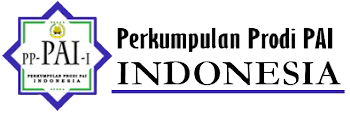Sistem Zonasi dan Sekolah Favorit (Pergeseran Profil Sekolah Favorit Pasca Sistem Zonasi)
DOI:
https://doi.org/10.19109/pairf.v6i2.21927Keywords:
Student Profile, favorite junior high school, zoning systemAbstract
The zoning system is a policy set by the government in order to minimize inequality in the quality of education. The implementation of the zoning system has both positive and negative impacts. This research aims to find out the phenomenon of student profiles in favorite junior high schools in the era of the zoning system. The method used in the research is qualitative with a phenomenological approach. Data were collected through observation, interviews, and documentation. Data analysis went through four stages: data collection, data condensation, data presentation, and conclusion drawing/verification. Test the validity of the data using the triangulation of sources and techniques.
References
Asuh, Pola, Keluarga Terhadap, and Prestasi Belajar. “Abstract Parental Factors Determine the Establishment of Children ’ s Intelligence in the Process of Maintaining , Actualizing and Giving Meaning to Their Spiritual Life . In the Process of Socialization of the Children , There Are Various Parties That Ma” XII (2014): 30–36.
Bryk, A. S., Sebring, P. B., Allensworth, E., Luppescu, S., & Easton, J. Q. (2010). Organizing schools for improvement: Lessons from Chicago. University of Chicago Press.
Deal, T. E., & Peterson, K. D. (2009). Shaping school culture: Pitfalls, paradoxes, and promises (2nd ed.). Jossey-Bass.
Deci, E. L., & Ryan, R. M. (1985). Intrinsic motivation and self-determination in human behavior. Springer Science & Business Media.
Dewi, Ida Ayu Putu Ruswita, Naswan Suharsono, and Made Ary Meitriana. “Persepsi Warga Sekolah Dan Orang Tua Siswa Terhadap Sistem Zonasi.” Jurnal Pendidikan Ekonomi 11, no. 2 (2019): 552–61.
Fauzi, Agus Machfud. “Rasionalitas Demonstrasi Orangtua Tolak Sistem Zonasi Dalam Pemilihan Sekolah.” Jurnal Mahasiswa 53, no. 9 (2019): 1689–99.
Fullan, M. (2007). The new meaning of educational change (4th ed.). Teachers College Press.
Febrianto, Muhammad Yusuf, Fenilinas Adi Artanto, and others. “Sistem Informasi Zonasi PPDB (Penerimaan Peserta Didik Baru) SMP N 2 Kesesi Berbasis Website.” Jurnal Surya Informatika: Membangun Informasi Dan Profesionalisme 13, no. 1 (2023): 42–53.
Febriyanti, Eka, Fajri Ismail, and Syarnubi Syarnubi. “Penanaman Karakter Peduli Sosial Di Smp Negeri 10 Palembang.” Jurnal PAI Raden Fatah 4, no. 1 (2022): 39–51. https://doi.org/10.19109/pairf.v4i1.5390.
Fitriyani, Ema Dwi, Abu Mansur, and Syarnubi Syarnubi. “Model Pembelajaran Pesantren Dalam Membina Moralitas Santri Di Pondok Pesantren Sabilul Hasanah Banyuasin.” Jurnal PAI Raden Fatah 2, no. 1 (2020): 103–16.
Habiby, Wahdan Najib, and Saroh Nur Fiatin. “Persepsi Masyarakat Dan Dampak Sistem Zonasi Untuk Jenjang Sekolah Dasar Di Kecamatan Serengan Kota Surakarta.” Jppd 6, no. 2 (2019): 225–38. https://doi.org/10.23917/ppd.v1i2.10151.
Hargreaves, A. (1994). Changing teachers, changing times: Teachers' work and culture in the postmodern
Huda, Mohammad Nurul. “The Impact Of Zonation System In Permendikbud No . 20 Year 2019 In Pamekasan District” 07, no. 02 (2020): 319–47.
Kabupaten, Muhammadiyah Ereng-ereng. “Journal of Education Social Persepsi Masyarakat Terhadap Sistem Zonasi,” no. 173 (2023): 179–87.
Lodan, Karol Teovani. “Penerapan Kebijakan Penerimaan Peserta Didik Baru Dengan Sistem Zonasi Pada Tingkat Sekolah Menengah Atas Di Kota Batam,” 2023.
Mallevi Agustin Ningrum, Suryanti, and Wiryanto. “Penerapan Sistem Zonasi Kebijakan Baru Berdasarkan Perspektif Orangtua Sebagai Upaya Pemerataan Pendidikan.” Jurnal Cakrawala Pendas 8, no. 3 (2022): 932–40. https://doi.org/10.31949/jcp.v8i3.2661.
Mareta, Iske, Indah Ayuningtyas, Dina Rosa, and Nur Wahdaniah Ijatul Islamiah. “Analisis Kebijakan Zonasi : Terampasnya Hak Sekolah Dan Siswa Dalam Pendidikan.” Jurnal Pendidikan 30, no. 2 (2021): 235. https://doi.org/10.32585/jp.v30i2.1522.
Mawarni, Cut, and Kamaliyah. “Akhlak Siswa Pasca Penerapan Sistem Zonasi Di Sumatera Utara : Studi SMAN 1 Percut Sei Tuan.” Jurnal Diversita 6, no. 2 (2020): 237–50.
Megasari, Ayu Selia, Ayu Nadia Pramazuly, and Hinfa Mosshananza. “PROVINSI LAMPUNG ( Studi Pada SMA Negeri 2 Bandar Lampung )” 3, no. 2 (2023): 1–7.
Mursak, M. “Implementasi Sistem Zonasi Dalam Penerimaan Siswa Baru Di Kecamatan Tellulimpoe Kabupaten Sinjai.” Journal of Government Science Studies 2 (2023): 61–70.
Nasution, Abdul Azis. “Pengaruh Model Inkuiri Terbimbing Terhadap Keterampilan Kerja Ilmiah Siswa Kelas V SDN 067251 Medan Deli,” n.d.
Nurlaila, Nurlaila, Halimatussakdiah Halimatussakdiah, Novia Ballianie, Mutia Dewi, and Syarnubi Syarnubi. “Internalisasi Pendidikan Karakter Pada Anak Dalam Bingkai Moderasi Beragama.” Nasional Education Conference, no. July (2023): hal 23.
Pangestuti, Asih. “Sistem Zonasi Dalam Perspektif Pendidikan.” Jurnal READ (Research of Empowerment and … 2, no. 1 (2021): 15–21.
Ryan, R. M., & Deci, E. L. (2000). Self-determination theory and the facilitation of intrinsic motivation, social development, and well-being. American Psychologist, 55(1), 68–78. https://doi.org/10.1037/0003-066X.55.1.68
Sari, Nurkumala, and Risna Dewi. “Implementasi Kebijakan Sistem Zonasi Dalam Penerimaan Peserta Didik Baru (PPDB).” Journal of Social and Policy Issues, June 2023, 50–56. https://doi.org/10.58835/jspi.v3i2.161.
Schein, E. H. (2010). Organizational culture and leadership (4th ed.). Jossey-Bass.
Tajfel, H., & Turner, J. C. (1979). An integrative theory of intergroup conflict. In W. G. Austin & S. Worchel (Eds.), The social psychology of intergroup relations (pp. 33–47). Brooks/Cole.
Theoharis, G. (2007). Social justice educational leaders and resistance: Toward a theory of social justice leadership. Educational Administration Quarterly, 43(2), 221–258. https://doi.org/10.1177/0013161X06293717
Tasyirifiah, Tahniah, and Anna Fadhila Pitaloka. “Dampak Pemberlakuan Sistem Zonasi Terhadap Daya Saing Pelajar Di Indonesia.” Al-DYAS 2, no. 2 (June 2023): 381–91. https://doi.org/10.58578/aldyas.v2i2.1200.
Taufiqurokhman, Taufiqurokhman, Evi Satispi, M Murod, and Azhari Aziz Samudera. “Kebijakan Pemerintah Memajukan Kualitas Sumber Daya Manusia Unggul” XX, no. 2 (2023): 189–206.
Tunjang Syaeh, Muhammad, Harlin Sabrinda Rasya, and Rifa Atiyyah. “Aktualisasi Government Sebagai Katalisator Empiris: Formsiswa Dengan Educational Dissemination Bias Pemerataan Sistem Pendidikan Kota Bekasi.” Journal Of Social Science Research 3 (n.d.): 8129–41.
Ula, Dany Miftahul, and Irvan Lestari. “Dampak Sistem Zonasi Bagi Sekolah Menengah Pertama.” Briliant: Jurnal Riset Dan Konseptual 5, no. 1 (2020): 10. https://doi.org/10.28926/briliant.v5i1.375.
———. “Imbas Sistem Zonasi Bagi Sekolah Favorit Dan Masyarakat.” Seminar Nasional Pendidikan Dan Pembelajaran 2019, 2019, 195–201.
Werdiningsih, Rini. “Implikasi Kebijakan Sistem Zonasi Dalam PPDB (Perspektif Orang Tua Dan Sekolah).” Jurnal MIMBAR ADMINISTRASI 20, no. 1 (2023): 261–67.
Widyastuti, Riski Tri. “Dampak Pemberlakuan Sistem Zonasi Terhadap Mutu Sekolah Dan Peserta Didik.” Edusaintek : Jurnal Pendidikan, Sains Dan Teknologi 7, no. 1 (2020): 11–19. https://doi.org/10.47668/edusaintek.v7i1.46.
age. Teachers College Press.












.png)


1.png)



